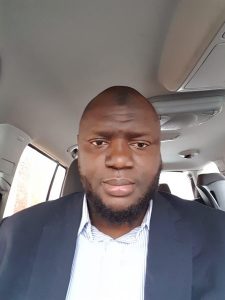
(JollofNews)- The parliamentary election results was an exciting one, a resounding rejection of hate mongers and tribal agitators. Truth prevailed over falsehood, love triumph over hatred, altruism outshined selfishness, light overcome night and the clue of tribal harmony and neighbourhood bond was strengthened.
Fear of tribal domination whipped by media especially some online papers created a lot of foreboding and uneasiness. Some even went to the extent of floating the idea of other tribes uniting to stand up to their perceived notion of Mandinka domination.
Alhamulillah this ignorable bigotry has largely been rejected in many constituencies except Fonis which understandably felt it existential to send clear message that they are still solidly behind their benefactor, Jammeh and APRC. People of Fonis did fared relatively better under Jammeh in term of job privileges however, a large number of them have evidently been incarcerated, maimed and even killed by Jammeh.
That fact is acknowledged. Yet for reasons of tribal affiliation, they turned a blind eye and voted for APRC perhaps thinking they can bring back Jammeh. That is mirage-hope, a dream at best. I hope the Jolas will let go their charged emotions and start a new page, an after Jammeh page. There so much for the Jolas to contribute in after Jammeh era. Jammeh is not master over their lives.
Before delving into result trend analysis to extract the tribal voting theme I want to examine the myth of the monotonous accusation of UDP being a mandinka party and thus a tribally inclined party; and by extension Darboe being a tribalist . I think this is false sentiments. The matrimony of the party’s top officials is a testament to the falsehood of the said allegations. We’re all smart nowadays and cannot allow part surrogates with devious interest to use the power and influence of their media portal to force down fear of a tribe into our throat.
Ourselves are capable of reading between the lines to identify false narratives which don’t stand unbiased scrutiny.
First if a person is tribalist, he find it difficult to speak other tribe’s language much more to marry from among them. The top echelon of UDP unlike other party leaders are married to spouses from other tribes and indeed from political families which since the first republic were known to harbour anti-mandinka inclinations. The foreign minister and leader of UDP is married to daughter of former leader of UP Mr Piere Njie, a Suruwa by all means, it is not far-fetch to claim that wife in many ways influence her husband’s life decisions of which political decision is no exception. Many of us in our fifties witnessed how Jawara’s marriage to daughter of Modou Musa Njie; an arch Mandinka opponent; gave so much political and economic power to the Banjulians especially the Modou Musa Njie family.
During Jawara era most Permanent secretaries, Directors, and Generals, accountant Generals, Auditor General, Secretary Generals were of Banjul extraction. The Finance Minister is married to Aku from Banjul who by extension is Wollof. So were many top officials, as Banjul seem to be spouse-magnet for many top Mandinka guys.
If these guys were tribalist, they would not want their offspring to come from a tribe they hate; so this notion of mandinka tribalism is nonsensical and is aimed at disarming anyone who want progress for mandinka tribe or want to speak his/her language. In the PPP era many notable mandinka ministers and MPs had wollof or Bajul spouses; like Bakary Darbo, Landing Jallow Sonko, Dembo Jatta, Saikou Sabally, Mbemba Jatta, Lamin kiti Jabang etc. How many ministers or directors from other side had Mandinka spouses. So I don’t think the tribal label fits here.
It’s time for a new consciousness that promote partnership and good coexistence to be the prevailing political theme . Tribal mudslinging and agitation precipitate malevolence and discord which can mature into an existential threat. It can tear down community and reverse our achievements over the years. Tribal discord spurred co-annihilation in many African countries and right now, the embers of tribal hatred is still simmering in Burundi. In that conflict some ruthless and maladroit journalists who do weigh the potential consequence of what they report were culprits in that tribal carnage. They spread unfounded rumours and causing fear and foreboding for other tribes.
Such journalists and media outlets should be identified and isolated with boycotts, this is because their actions are a threat to community cohesion. That is not anti-media measure but for expedience of national security and it is not uncommon to see such firm actions taken by developed democracies. UK did at one time piled so much pressure on PressTV, RT and Sputnik. The media should play a constructive role, hold government and institutions to account, disseminate information but if it endeavour to fan the flame of tribal discord, that is red-line.
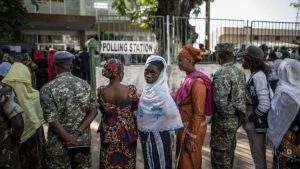
The results announce in my own backyard, Kombo South is a microcosm of what transpired in major part of the country. There is strong correlation coefficient in the pattern of results which sadly in many manifestations exhibited a trend of tribal voting. In Kombo South, the results bellow show that in villages where there is strong Fula presence like Nyofelley voted for GDC and where there is strong Jola community like Banyaka voted for APRC.
BANYAKA
APRC 321, UDP 142, GDC 86 ,Independent 8, GPDP 4 , NRP 2
KARTONG
Independent Banfally Demba 169 , UDP Kebba K Barrow 241, APRC Abdou Calley 224, Awa Bah NRP 39, GDC Ebrima E Fatty 69, GPDP Alsanna Keita 11.
SIFOE
Sifoe Independent Banfally Demba 260 , UDP Kebba K Barrow 512, APRC Abdou Calley 429, Awa Bah NRP 2, GDC Ebrima E Fatty 218, GPDP Alsanna Keita 6
NYOFELLEY
GDC 414 UDP 193 APRC 99 IND 17 NRP 9 GDPD 2
GUNJUR
NRP 31 UDP 3617 INDEPENDENT 55 GDC 208 GPDP 13 APRC 301
SANYANG
UDP 1389, NRP 40 INDEPENDENT 125 GDC 254 GDPD 33 APRC 815
In Gunjur, Sanyang’s, Tujereng, Tangi, Jambanjelly, Jambur, Busumballa all with Mandinka majority voted overwhelmingly for UDP.
The pattern exhibited in Kombo south was disappointingly replicated country wide. This is dangerous because it can lead to community fragmentation, disillusionment and political apathy. Thereis a strong inter-marriage sub-culture in the Gambia and if tribal fragmentation is allowed to subsist, it can break community spirit and replace it with a ghetto mentality where everyone is attuned only his or her tribe. I saw a gist of this notion on my last holiday when I work into former BICI bank branch near Sunuker. I spoke to cashier in Mandinka and the first thing that came into her mount was “man dekuma sosseh” and I deliberately retorted “eng fanna man suruwa kango moi”. I can speak wollof but the response of the cashier appears to be derogatory and insensitive. Institutions should make it mandatory for potential employees be bi-lingual in order accommodate to those who cannot speak wollof. You can see a stalemate at the bank, which supposed to me customer oriented than many institutions.
Tribal voting confounds the spirits of democracy as people don’t vote on principles but the language of the contestants. It is clear from the pattern of voting that NRP and GDC won in areas with Fula and Fana Fana communities, PPP won in a place with strong wollof community. It is not unsafe to say UDP win in areas with strong Mandika communities except for lower and upper Niumi which the coalition lost in the presidential election. The hinterland of the Niumis has a strong Fana Fana and Fula constituents. As in Upper Niumi, the UPD candidate has both Fula and Fana fana in-laws, perhaps that played a role in his win for UPD.
As for PDOIS, it is difficult to inference the role of tribal voting in the constituencies they won however Halifa’s fame and credibility failed to attract votes for PDOIS. It seems the fracas that ensured between him and Darboe had was understood to have a tribal undertone especially from the Mandinka side. I don’t think Halifa is tribalist, it was just that he had a different model of how the coalition should contest the a parliamentary elections.
The voting pattern was evidently not based on the competence and ideology of parties but on tribe connections, which is quite worrying. Unlike advance democracies and even our neighbour Senegal, the people vote with their head not with their tongue. They analyse the policies offered by the contending parties, competence, leadership qualities and credibility of the contestants and extent to which they fulfil their political views. At the end of the day, they have strong interest in the progress and prosperity of their nations.
Why did it come to this despite the tribes living side by side and even intermarried suddenly take tribal lines in politics. If Yaya sow the seeds then it has germinated and it does not augur well for our communities who shared everything from land to sea, mosques to markets.
Initially I subscribe to the position of PPP and PDOIS , that was for the coalition to participate in the parliamentary elections under one umbrella so that the cohesion they forged in the presidential election can be nutured. To my utter consternation there ensues a lot of personal attacks, aspersions and even vitriol on the person of Ousainou Darboe principally fermented by the online media and party surrogates after the coalition could not agree on way forward to contest the parliamentary election. I ask myself is there more to this than politics. After there were counter argument, tirades and mudslinging against Halifa Sallah, I became totally disenchanted. I called some friends in the Gambia to gauge their reactions to personal attacks. One told me, “the diaspora online media want to micro-manage and control the political discuss in this country because they send money. We will show them that, we voted for the change and we control the narrative. Some of them are haughty and think big of themselves; they think that, their ideas should always be accepted, we will not accept that”.
They further went on, “the character assassination of Darboe has tribal connotation and it will make all Mandinkas rally around Darboe and UDP”. The forgoing comment gave me an inkling that perhaps there is a potential disconnect between diaspora and denizens on the ground. It seems the diaspora online media over estimate their influence.
If politics cannot be idea contest, policy polishing and constructive engagement then it’s not for me. How can people who were bedfellows at one time and achieved the liberation of our country from the clutch of dictatorship suddenly started to tear down each other. I was even more disappointed when I heard leader of PPP spraying personal attacks on leader of UDP and I thought that was not politically prolific and it was quite short-sighted.
Gambia is one big family, it can only realise its dream of national progress if we put aside our tribal differences and work in unity. Tribal hegemony hardly work in any country and it shall never create prosperity for any tribe. Our long entrenched Gambian cordiality and tribal harmony should be a sacred mantra to be religiously uphold at all times. The government should work on this very important project to ensure, our youths especially; see tribal diversity as a course to celebrate; not a source of pride and disdain.
No organisation shall be stuffed by one tribe like Trust Bank. The school curriculum should be oriented to appreciate tribal harmony and one way to achieve that, is to make it compulsory to study at least two local languages at school. The TV station, GRTS should have as many channels as feasible for nearly all major tribes to avoid alienation.
The role of media in aiding tribal harmony cannot be over emphasised in these times of disquiet but it is sad to see many media portals glaringly tribe- inclined. Nearly all programmes in some online radios are produced in one local language and if you asked questions in another local language you can sense apathy and subtle disengagement from the moderator. If this is not changed, the online radios will have tribe-base audiences. Mandinka for Kibaaronews and Kairo news, wollofs for Freedomnews and Fatounetworks etc.
Politicians should encourage speaking local languages in parliament and those who cannot speak another local language can be assisted with tuition to improve local languages skills.
The imams too have a job on their pulpit. They should preach the positivity of Allah’s wisdom in creating us different. It was to manifest His magnificence to us as tribe to see whether we will use our tribal differences for good or bad, it is cardinal law that, for everyone is reward for the deeds of his or her hands and tongue and indeed all your appendages.
No one chose his or her tribe but it was chosen by the creator, Allah, Jalla Jallallu therefore it is not an acquired quality which one can be proud of, rather a source of appreciation and rejoicing the Allah glory of the master planner, ALLAH the Lord of universe
By Lamin Darboe
Leicester UK

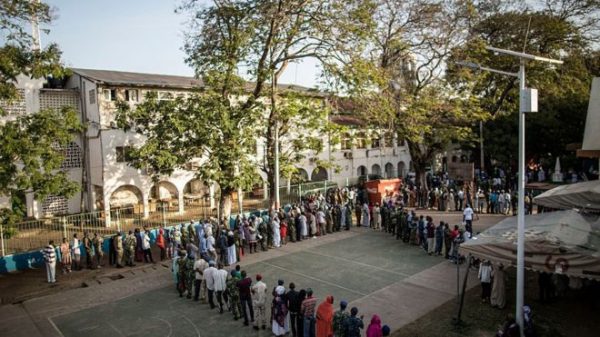
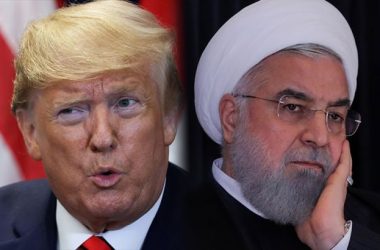
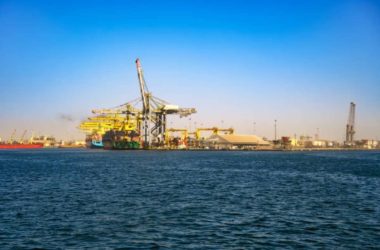


Interesting piece but for an outsider like me appears contradictory/ I agree the online media need to be searching, but relevant and not tribalistic. But they should not be handcuffed to party but to the people.
Darboe, A very balanced analysis of the elections. growing in a mandinka community in the 60′ I learned Bading fasta was the most respected phrase in the mandinka dialet. The same translated during the elections. All the tribes except the jolas voted based on thier political fugures hence the split in votes between ppp, pdois, nrp and gdc and udp by the wolofs, fulas, serehules, sereres but sadly, we the mandinka went all out to do Bading fasa because we feel that any mandinka who wilfully voted for Gdc or pdois, ppp would be fangjawo and dango. hence the pattern is clear. We only look for the yellow box which identifies our unity with ou r tribe without considering the political figure but the
leadership our kinsman. sadly all gambians even the illiterates have realised that the Mandinkas only were interested in voting for udp irrespective of the political figure. this believe about bading fasa is nothing related to educated in harvard or Mit, LSE, it a social cult constructed nutured in generations and sadly Gambia has come off age. We have intermarried as you have rightfully put and we cannot be divided any more.It should then take matured and professional politician to handle this very sensitive tribal nonesense talk that is eating up our most cherised coexistence. I hope people like you would be good ambassadors to continue teaching the gospel.
UDP is not a tribalist Mandinka party, but it cannot be disputed that some prominent members of the party, as well as some who associate themselves with the party, have appealed to tribal loyalty for support. A lot of it was subtle, but it is noticeable by any keen observer of the Gambia’s political scene.
And they have played the victim card very cleverly, whilst making sure that the tribal debate was never laid to rest, during the entire elections process.
Gambian voters hardly vote on issues that matter to them and many politicians, opinion leaders and influential people do not help by their brand of politics.
Now that the two main elections are over, with only the locals to come, let’s hope that all will put hands together to increase citizen awareness through civic education, discussions and public debates. We must encourage the culture of round the clock engagement on all matters of national concern to increase awareness and participation. That’s the only route to a no return to the old ways, but we must all be involved.
@ BAX= I would say we have a political system of clientelism. But whatever it is, we should always remember: Our Unity, Peace, Security, Justice is the foundation of our lasting development and the reinforcement of our Democracy. We should take all efforts to defeat DISCRIMINATION and CORRUPTION, without which we are bound to failed
Good words and intentions my friend/
But I can’t help thinking some online media are more tribalistic than people orientated. WE are all imperfect/ It may take years for Jammeh to be less of a dim light in all this. Glad to see your not one of those on line looking for recognition for a Government job. Nothing has changed that much except the killing machine has silenced.
Bax; Do we know how many UDP candidates were Mandinka ? Just curious.
Mike, most of the UDP candidates who won have Mandinka sounding surnames just as PPP candidates have Wollof sounding surnames and GDC candidates have Fula sounding surnames. Only NRP and PDOIS candidates have mix tribe sounding surnames but NRP candidates did well is mainly Fula areas.
Wow! I don’t know you but I like your article very much, Mr. Darboe. I have read so many online pieces on Gambia’s political and cultural climate, but I don’t think I have read any so far that is as objective as your piece. You have hit the nail on its head. I think we all need to take a step back and consider what our country is going through and come up with ideas and suggestions that will unite us. The name-callings from all sides need to stop. It won’t benefit anyone when we are this divided. I try to stay away from most of the online forums these days because you end up receiving all kinds of negative propaganda messages that only add insult to injury. Thank you very much for this excellent article. Again it is only my opinion but I think you were very objective in your writing. Gambia needs lots of this kind of objectivity. May God bless you.
My inference from the vote pattern is that people voted quite consciously and with a goal in mind. They wanted to eradicate aprc and didn’t want to replace neither with GDC not independent candidates. They want a decisive political force to eliminate endless squabbling on the way. That ppp and pdois did badly, is obvious. PPP was replaced by UDP so as ncp. Pdois never went beyond the 5% threshold in Gambian elections. Added to the misery of pdois and ppp was that they concentrated their energies on explaining to voters why the coalition “broke” and who was responsible instead of moving on and selling their respective. Of course Darboe played the card well by ignoring the attacks and touring the country and meeting real people who evidently infact went out to vote. Hampton also did his part well and was rewarded with 5 seats.
Hence to reduce the whole to mandinka stamping foot, is a simplistic analysis. Where I agree with above analysis is that Jammeh’s seeds of division has germinated and many online non-voters overrated themselves.
Interesting piece but one-sided and partisan. Lamin Darboe went at length to prove that UDP is not a tribalistic party but painted other parties in tribal light. I don’t think that’s fair. No one can say categorically some Mandinkas didn’t vote on tribal line. In a fledgling democracy like Gambia, tribalism is inevitable as state resources are largely accessed through patronage networks. So, the greater your connections and contacts in government, the greater access you have to state resources. This is a key driver of tribalism. People can be non-tribalistic in their private life but turn tribalistic in politics out of sheer opportunism. Before the genocide in Rwanda, the Hutus and Tutsis were intermarried but that didn’t stop them from killing other another when politics took over. It is the duty of informed Gambians to keep fighting tribalism. But it’ll take more than a generation to flush it out of the system given the level of poverty.
Folks you all got some things right and I acknowledged the fact that this niece’s intention not to be exhaustive but to show that tribalism did exist the Gambia but not exclusively mandinka trait as painted by mmany in the social media. Its all been madinka this and mandinka that, or Ousanou this Ousainou that until there ensued through WhatsApp groups notably from UDP surrogates counter argument. I have not read any article analysing why Ousanoiu or UDP is not as tribalist as painted by some quarters. My contention thst, if he is tribalist, he would have married in his tribe but no, his two wives are not mandinka and I wonder why.
Some of my uncles are jolas and have ditrect jolas cousins with Badgie suremane, my wife a converted fula and my grandma from mum side is serere yet descendent of Lang Sonna Darboe, kombo sillah’ s General, it does not befit for me to be tribalist. No one can deny the existence of tribal voting, in the last election,it’s as clear a the sun in the desert.
Had OJ or Halifa or Mama Kandehever been accused of being a tribalist but by many insinuations Darboe and his party, that’s why I went to length reject that insinuation. Halifa is a brorher to me because I used to hand out with his last brother who was my blossom friend at Muslim High and i am familiar with all his family especially his dad. OJ sponsored my A level maths orivate classes and do speak with him. We are all one family yet divergence of view in many occasions split us irrevocably when in the west such divergence are channelled constructively leading to crafted convergence for achievement of a meaningful course.
Jammeh legacy I call it. He wanted everything for himself and willingly placed ethnic vitriol on his agenda and as policy. People are people. If you constantly poke slanderous comments at people by virtue of being a particular ethnic group and their culture, at some point they will close ranks and fight for their naked survival. This situation will require generations to overcome. He was a bad leader. A good leader is aware of cultural differences but works towards bridging them by encouraging a mainstream culture. Jammeh terribly failed in that. Sadly he succeeded in swaying the minds of some elites into believing that Gambia is in danger of mandinka domination, if he were to go. All was false and geared towards his own singular entitlement. We must undo his machinations to rekindle our understanding of nationhood.
KNOW UR NATIONAL ASSEMBLY MEMBERS:
1.Muhammed Ndow- Banjul Central-PPP
2.Fatoumatta Njie-Banjul South-PPP
3.Ousman Sillah-Banjul North-PDOIS
4.kajali Fofana-Jarra West-UDP
5.Kebba Jallow-Jarra Central-GDC
6.Sainey Touray-Jarra East-UDP
7.Yaya Gassama-Kiang East-UDP
8.BaKary Camara-Kiang Central-UDP
9.Fakebba NL Colley-kiang West-UDP
10.Assan Touray-Bakau-UDP
11.Alhagie Drammeh-Jeshwang-UDP
12.Halifa Sallah-Serrekunda-PDOIS
13.Madi MK Ceesay-Sk West-UDP
14.Fatou K Jawara-Tallinding-UDP
15.Bakary Njie-Bundung-UDP
16.Saikou Marong-Latrikunda-UDP
17.Matarr Jeng- Lower Niumi-UDP
18.Omar Darboe-Upper Niumi-UDP
19.Salifu Jawo-Jokadu-GDC
20.Alhagie Jawara-Lower Baddibu-UDP
21.Sulayman Saho-Central Baddibu-UDP
22.Dembo KM Camara-Illiasa-UDP
23.Ousman Touray-Sabach sanjal-NRP
24.Momodou Camara-Janjanbureh-UDP
25.Demba Sowe-Niamina West-GDC
26.Omar Ceesay-Niamina East-GDC
27.Samba Jallow-Niamina Dankunku-NRP
28.Alhagie Darboe-Lower Fulladu West-UDP
29.Dawda Kawsu Jawara-Upper Fulladu West-UDP
30.Sainey Jawara-Lower Saloum-NRP
31.Alhagie Mbow- Upper Saloum-NRP
32.Alhagie FB Sillah-Niani-UDP
33.Amadou Camara-Nianija-NRP
34.Alfusani Y Ceesay-Sami -UDP
35.Suwaidou Touray-Willi East-PDOIS
36.Sidia S Jatta- Wulli West-PDOIS
37.Billay G Tunkara-kantora-UDP
38.Foday NM Drammeh-Tumana -UDP
39.Muhammed Magassy-Basse-Independent
40. Alhagie H Sowe-Jimara-GDC
41.Kaddy Camara- Foni Bondali-APRC
42.Musa Amui Nyassi-Foni Kansala-APRC
43.Momodou Camara-Foni-Bintang-APRC
44.Lamin FM Conta-Kombo East-UDP
45.Baba Galleh Jallow-Sanimentereng-UDP
46.Alhagie S Jammeh -Foni Jarrol-APRC
47.Abdoulie Ceesay-Old Yundum-UDP
48.Saikouba Jarju-Busumbala-UDP
49.Kebba K Barrow-Kombo South-UDP
50.Lamin J Sanneh-Brikama South-UDP
51.Alagie S Darboe- Brikama North- UDP
52. Muhammed Mahanera-Sandu -UDP
53. Sunkary Badjie-Foni Brefet-APRC
SUMMARY: Indept 1, PPP 2, PDOIS 4, APRC 5, GDC 5, UDP 32, NRP 5.
Thanks to you always !!!
Lamin, you have highlighted some interesting points in your article. However i will say tuition for national assembly members to learn other local languages and allowing local languages to be spoken in parliament should be a no go area. Politics is already polarized on tribal lines so giving any role to politicians in the debate will only make it worst. I don’t mind giving our politicians tuition in public speaking and English language and any foreign language because they can use those language skills to effectively communicate amongst themselves and with their counterparts around the world. The Gambia’s official language is English, therefore we should all speak English in all our official engagements. And Lamin that includes you and me, we should speak English when we go to offices and not Mandinka, Wollof or Fula. If you had spoken to the cashier in English perhaps the two of you would have had a nicer conversation. The only way to push tribe into the abyss is by ensuring that we all communicate in a neutral language. The government should make teaching children how to write and speak good English a priority. Debates within and between schools should be encouraged. I remember my cousin telling me that in Armitage High School they have periods where no one is allowed to speak vernacular. I know it was tried in my primary school but teachers soon dropped it. We should help kids to build their language skills so that they can grow up to become proficient in English. If we succeed in making English our main medium of communication then tribalism will eventually disappear.
May God bless you Mr Darboe for the wonderful contribution on this critical moment in the history of Gambian politics.
My contribution to this is that for our country to develop, TRIBE must die ! We must stand together as one people, work collectively together for the interest of our beloved country. No shall we follow personal interest neither shall we keep that in mind.
If we insist without following our collective objectives and saying no TRIBAL FEUDALISM .
then indeed and divided we shall fall .may God forbid that.
May The Almighty guidance be upon Gambia and the Gambians . Ameenallah .
How many nations including some african are using their own local languages in their parliament seemingly to encourage broad political participation. While should citizen low skills of a colonial language be a barrier for him be an MP and contribute to parlimemyary responsibility. I remember in Jawara era MPs like Kebba Leigh and Famara Wassa Touray used to sleep during debates and when woken up they will retort, if the debate was in mandinka then I will participate constructively yet these were the giants who established the first republic. Senegal is successfully using local language in parliament, so is kenya, Tanzania and many others.
African should strengthen local dialect communication so that populace can communicate across tribe boundaries. If you go to Senegal, everyone speak wollof yet wollofs is not the majority tribe. Professor Chomsky isln one of his discusses refer to this failire of African countries to indingenise and broaden their language even after many years of colonial rule. He compare developed and non developed nations and realise all debeloped countries communicate in their local languages in official realm, being parliament, finance and social media. Example, India, Parkistan,Malaysia, Singapore, Thailand, Japan, Arab countries even though some were colonised like African countries.
What an irony, my neighbor cannot speak.my language but speak to me in a foreign language yet I can speak his language. Some African countries like Nigeria encourage students to study Hausa, Yoruba or Ibo and they doing very well.
As Frakkahn once said iindependent, freedom and emancipation are not co-equal. You can be independent yet remotely control my a web of channels. Today many intelligence organisations can easily gather intelligence on Gambia cus we give them a gift omas every official communication is in English. No wonder Abdou Nasar employ a Nubian language to deflect Israeli intelligence gathering competences.
Lamin, like you said in some African countries they use their indigenous language in parliament. That is made possible because most if not all the population of thise countries can speak that language. Senegal for example are able to do it because everyone speaks Wollof. Can you imagine Gambians are asked to speak Mandinka in parliament? ? The other thing about speaking ones own language in parliament and using it in financial transactions is that ome should be able to write in that language. India, Pakistan and Malaysia all have their own alphabets ti write. Which we don’t have in Gambia.